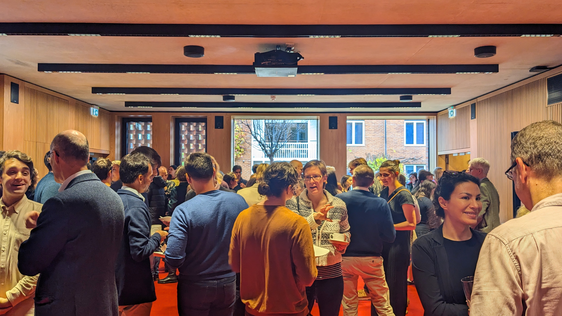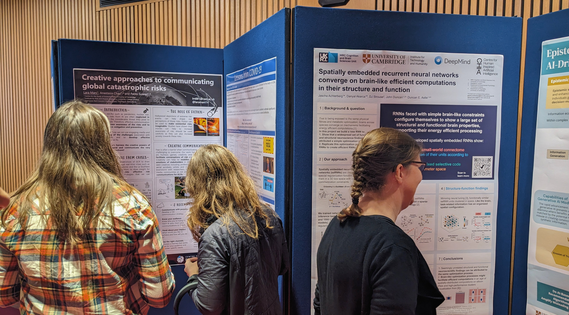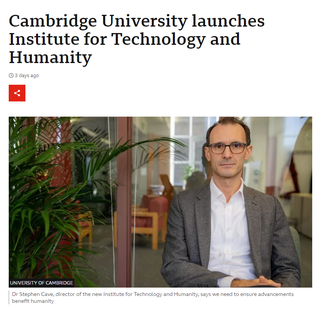CSER is one of the founding centres behind the Institute for Technology and Humanity which launched this week in Cambridge.
The Institute is set-up to support world-leading research and teaching that investigates and shapes technological transformations and the opportunities and challenges they pose for our societies, our environment and our world. It is also home to the Leverhulme Centre for the Future of Intelligence and the Centre for Human-inspired AI.

At the launch, the Institute director, Stephen Cave, emphasised the double edged sword of innovation and the need to mitigate the risks while making the most of the opportunities. CSER co-founder Martin Rees echoed the idea that technological progress must come hand in hand with human abilities to make the most of it. He ended his speech with a line from his book If Science is to Save Us: "We need to think long-term, empowered by twenty-first-century technology but guided by values that science alone cannot provide.”

In the Cambridge University news story on the Centre, Deborah Prentice, Cambridge's Vice-Chancellor says “the new institute demonstrates that the University of Cambridge is rising to this challenge of ensuring that human technologies do not exceed and overwhelm human capacities and human needs”.
CSER Director Matt Connelly added to the University news story that his forthcoming book based on the four horsemen of apocalypse – war, pestilence, famine and death will be: “looking at nuclear war, pandemics, climate change, and lastly apocalyptic movements”.

A BBC article also referred to how the new institute will bring together concerns about a range of risks, among them the effect of volcanoes on global communications systems, lessons from Covid-19 and the misuses of generative AI.
The UK Government also added their support for work on extreme risks with £10 million announced the following day. This new funding is to deepen our understanding of risk impacts, their potential mitigations and response preparations, and this tweet from the ESRC chief indicating that this will focus on high impact risks. This came alongside cuts to public spending in general, indicating how important this work is seen to the future prosperity of the UK.
The mission of the new Institute is to integrate rather than separate insights from across different disciplines, technologies and sectors. Gillian Tett, Financial Times Journalist and Provost of King's College Cambridge, said at the launch that her background in anthropology and media has taught her that tackling complex missions like this one will require excellent communication and multidisciplinary researchers collaborating closely.